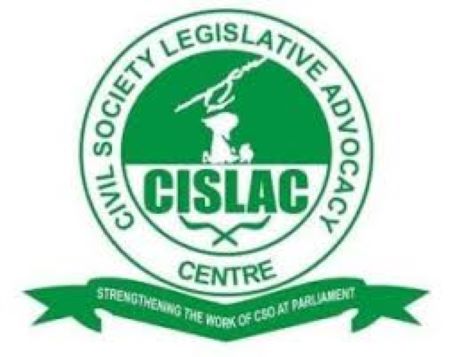The Civil Society Legislative Advocacy Centre (CISLAC) has called on the Nigerian government to prioritize the needs of persons with disabilities (PWDs) by significantly increasing budget allocations in the 2024 supplementary budget and the 2025 budget.
This, the Centre argue, “Is essential for promoting inclusivity in Nigeria’s governance processes and addressing the serious socio-economic challenges they face.”
CISLAC emphasized the importance of socio-economic and political inclusion of PWDs for good governance to prevail in Nigeria.
The Centre highlighted that “democracy requires treating every member of society equitably and that PWDs should not be an exception. Inclusivity ensures that all citizens, including PWDs, can contribute to national development.”
While CISLAC commended the federal government and the National Assembly for their efforts to address challenges they face, the Centre contended that more needs to be done.
ALSO READ [JUST IN] S’Court declares govs’ hold on LG funds unconstitutional
Specifically, it urged the government to increase budgetary allocations for PWDs, especially in light of the current economic realities, adding that despite the passage of the 2024 appropriation bill, the government should draw from contingency funds to support PWDs.
CISLAC noted that “despite the enactment of the Discrimination Against Persons with Disabilities (Prohibition) Act in 2018, implementation has been hampered by inadequate funding. Over 30 million Nigerians with disabilities lack access to essential services such as education, healthcare, employment, and accessible infrastructure.”
PWDs face significant barriers that hinder their full participation in society, including limited access to education, high unemployment rates, and inadequate healthcare services. These challenges perpetuate a cycle of poverty and social exclusion, preventing them from contributing effectively to national development.
CISLAC made several recommendations to the government, including:
Increased Education Funding: Investment in special education programs, vocational training, inclusive schools, and skills acquisition workshops to equip PWDs with the necessary skills for gainful employment.
Healthcare Improvements: Provision of accessible healthcare facilities and services, including rehabilitation centers, assistive devices, and specialized medical care for PWDs.
Employment and Economic Empowerment: Implementation of policies that promote employment opportunities for PWDs, support for entrepreneurship, and enforcement of anti-discrimination laws in the workplace.
Accessible Infrastructure: Development of public infrastructure that is accessible to all, including government buildings, transportation, and information and communication technologies.
CISLAC reaffirmed its commitment to advocating for the rights of PWDs and called on all stakeholders, including the government, private sector, civil society, media, and community organizations, to join hands in promoting an inclusive society where every Nigerian, regardless of ability, can thrive and contribute to national development.


